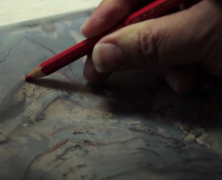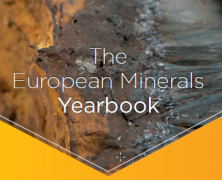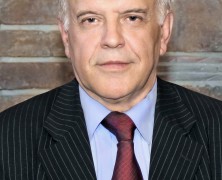The new video by the Geological Survey of Spain (IGME) available in English and Portuguese THE GEOLOGICAL MAP Drawing the Earth’s skin O MAPA GEOLOGICO Desenhando a pele da...
The new video by IGME available in English and Portuguese! Watch “THE GEOLOGICAL MAP: Drawing the Earth’s skin”...
posted by EuroGeoSurveys
TAXPAYER FUNDED BOOST FOR EUROPEAN MINING INDUSTRY
posted by EuroGeoSurveys
PRESS RELEASE TAXPAYER FUNDED BOOST FOR EUROPEAN MINING INDUSTRY Brussels, 15 October In the wake of global economic slowdown and collapsing commodity prices, mining companies and consumers of minerals need to be ever more cost conscious if they are to survive. On the 15th October, the European Minerals Yearbook, first digital reliable source of information on minerals statistics and intelligence in Europe, was officially launched at the “Raw Materials Diplomacy Dialogue between the EU and Advanced Mining Countries” organized by the European Commission DG GROW and EASME in Brussels. Including 40 European countries, 65 commodities from primary minerals with a focus on the twenty critical raw materials for the EU, covering a 10-year span for production and trade, the Yearbook is meant to reduce costs and risks, and secure sustained supplies for European industries in the mining and manufacturing sectors. This comprehensive database contains detailed production pan-European information, therefore providing a new tool to the industry and EU decision-makers which before had to rely on fragmented and/or non-official sources. As MEP Mr Andrejs Mamikins stated: “The European Minerals Yearbook is a great achievement. It could, for instance, reinvigorate also my home country Latvia’s economy through a more efficient extraction and subsequent use of natural resources. It could allow Europe to be much more self-sufficient and not overly dependent on the United States Geological Survey agency. It is my hope that the newest yearbook shall open a new page in Europe’s quest for increased competitiveness and prosperity”. In his speech, Mr David Mair, Director for Policy Support Coordination at the Joint Research Centre of the European Commission, strongly supported the strategic cooperation between the JRC and EuroGeoSurveys to transfer knowledge and scientific evidence into policy. The Yearbook information is intended to be used by...
Launch of the European Minerals Yearbook
posted by EuroGeoSurveys
On 15th October 2015, in Brussels, the first official European Minerals Yearbook will be launched in the frame of the next Raw Materials Diplomacy Dialogue between the EU and advanced mining countries event, organised by the European Commission’s DG Grow and EASME. The event will be opened by the DG GROW Director Mr. Gwenole Cozigou and by MEP Mr R. Buetikofer. Mr Andrew Bloodworth, Science Director for Minerals and Waste from the British Geological Survey will explain how this innovative comprehensive source of minerals statistics can facilitate for the first time the European Union decision-making on investment planning and can be used to benefit the European economy, industrial development and trade and the lives of European citizens. Alongside data for primary minerals, the European Minerals Yearbook includes available data for mineral-based waste generation, treatment and trade. It presents national level statistical data for 40 European countries for the last ten-year period 2004 to 2013. All the data are accessible digitally through the European Minerals Knowledge Data Platform and provide the resource potential of primary and secondary mineral sources in Europe. For more information please contact the EuroGeoSurveys Secretariat http://www.minerals4eu.eu/...
Interview with Mr. Dragoman Rabrenović, Director of the Geological Survey of Serbia
posted by EuroGeoSurveys
The Geological Survey of Serbia (GZS) became a full member of EuroGeoSurveys (EGS) in March 2015. What are the priorities and needs for GZS in order to grow further within EuroGeoSurveys? The Geological Survey of Serbia, which dates back to 1930, has a long and well established history, with internationally recognised professional expertise. Being a full member of EuroGeoSurveys is very important for us. This is in accordance with the strategy of our Survey too. It is an occasion to follow the latest professional trends worldwide, which represents an advantage and a way for every European Geological Survey to increase its international presence. Geology has no borders, and geological practice needs international cooperation. Our priority is to see EGS and GZS in a mutually beneficial ‘win-win’ situation. In order to exchange professional experiences, especially within the new technologies domain, we need well-established cooperation with other Geological Surveys across the EU. Our Survey is going to support our colleagues to join the existing EGS Expert Groups. Serbia is officially a candidate country to become a member of the EU and negotiations with Serbia have already been opened. How would you describe the benefits/consequences of such a milestone for geological survey cooperation? It is clearly important to harmonize EU and RS regulations , and in this instance, those that apply to our profession. EGS provides a focal point for various appropriate professional experiences and this will be another advantage. Our Survey has obligations and plays an active role in creating national regulations relevant to geology. In the landscape of Balkan countries, the Geological Survey of Serbia is quite a large institution and could potentially put cooperation on the right track in several geological domains with neighboring countries. How would you see such a role? For the...



